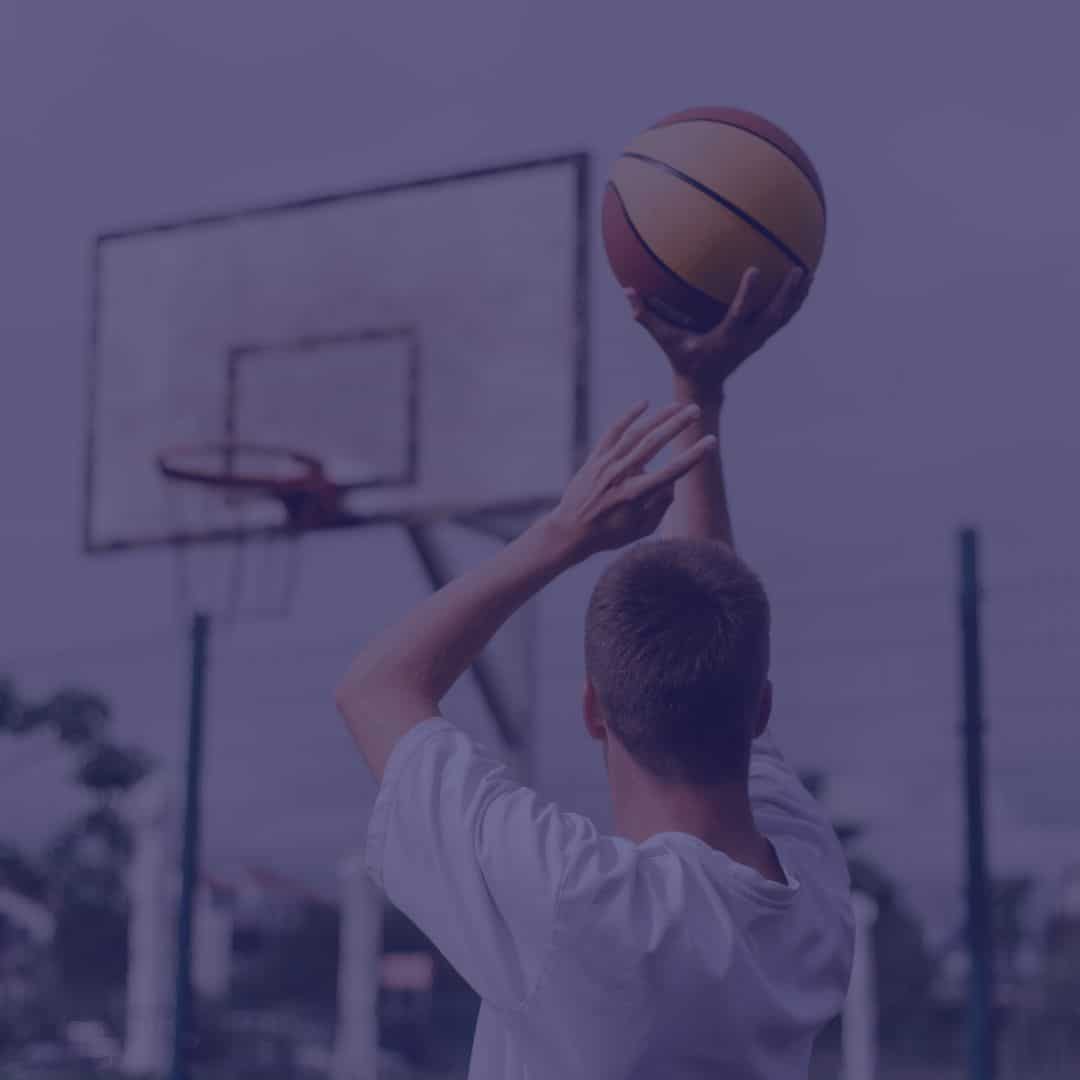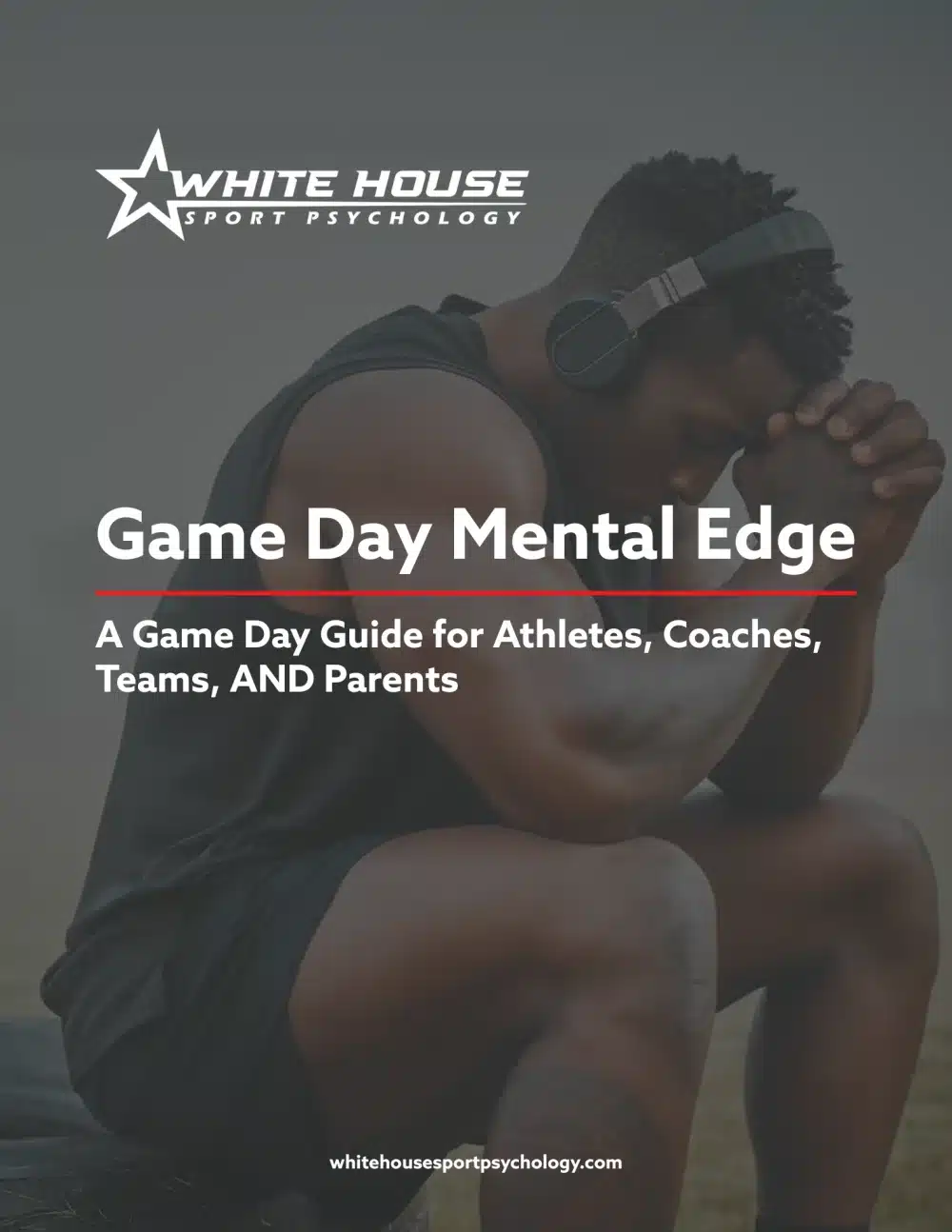When a new idea, program, product, or service is pitched to an athletic department, it’s not uncommon for it to be met with skepticism and a semi-automatic response that goes something along the lines of, “That seems great, but we don’t have the budget for it.”
However, when it comes to services like sport & performance psychology and athletic counseling, the real question is, can you afford NOT to build it into your budget?
Read on to find out.
The Growing Demand for Sport Psychology Services
Today’s athletes have access to more resources than ever before. The level of support, care, guidance, and assistance they receive supersedes that of any generation before them. Athletes have never had this much access to coaches, athletic trainers, strength & conditioning staff, technology, facilities, academic support, leadership programming, and financial support (think NIL).
Fortunately—for some—there is also access to highly trained and qualified sport psychologists. Unfortunately, this isn’t the reality for most of today’s collegiate athletes.
The increased demand for sport psychology and athletic counseling services is forcing many college and university athletic departments to wonder if they can afford to provide these services. But again, the real question is, can they afford NOT to?
Some departments and programs automatically assume they are too strapped for cash and can’t afford to hire a highly trained and qualified sport psychologist. That approach fails to consider both the short and long-term consequences of making a decision strictly based on budgetary confinements.
Athletics Is About Competition—On and Off the Field
Plain and simple, athletics is about competition. Teams compete on the field, court, mat, ice, pool, etc. That part is easy to see. The less obvious part is the competition that occurs before an athlete even arrives on campus. And even less obvious is the competition that occurs once they are at your institution.
What we’re talking about here is the competition for recruits—not only during their high school years but also during their time on campus. The ability to gain an athlete’s commitment to your school and your program in the first place isn’t enough anymore. You must continually give them a reason to stay for all four (or more) years of their eligibility.
In the not-so-distant past, the biggest collegiate programs in the country poured resources into flashy, upgraded facilities and high-caliber coaches in the name of competing for the nation’s best recruits. Why? They believed those things would be the difference between an athlete choosing to play for them rather than their rivals.
Although facility updates and headline worthy coaching hires continue, most of the institutions that belong to the most powerful conferences in the nation have generally comparable facilities and coaching personnel. So what comes next? NIL? Generally speaking, yes.
But what we haven’t mentioned is the fact that there is a noticeable gap between the largest and most powerful schools (who belong to the most powerful conferences) and “the rest” of the schools who compete in the “non-power conferences.”
We quickly realize that roughly 70-75 institutions have somewhat comparable facilities, coaching staff, NIL collectives, and other resources. Are there differences within these 70-75 schools? Of course.
But the differences between schools 1-5 and 70-75 are not nearly as big as the differences that exist between the biggest and most powerful 75 schools and the other 1,100 NCAA member schools that are located across the country.
Setting Yourself Apart From the Competition
By this point, you may be asking yourself, “So what?”
The answer to that question is this: If a school isn’t part of that top tier and isn’t in a position to “wow” prospective student-athletes with top-end facilities or lucrative NIL collective agreements, then it has to start thinking about what it will take to set themselves apart in a different way.
As athletes navigate this new and ever-changing landscape, they face decisions about the people, organizations, and relationships that will offer them the best chance of success. For many, this still includes the goal of playing at the next level. And as they consider how they will achieve their goals, they want to know who they can surround themselves with to make those goals a reality.
Take it from those who have competed for these “mid-major” programs.
According to our clients who compete for “mid-major” institutions, they want to surround themselves with a support system that gives them the best chance to optimize their performance and maximize their results. Typically, this means they want a support system that will help them reach their potential and ultimately have half a shot at being noticed by someone at the next level.
Yes, high school recruits and returning student-athletes are paying attention to who is around them and how those professionals can help them extend their athletic careers.
And one of the roles they are paying attention to more than ever is the sport psychologist.
What Today’s Athletes Want From Sport Psychology
Athletes want to know who can help them build their mental game and, if needed, support their mental health. And they aren’t looking for just anyone. A typical counseling or psychology degree won’t cut it. Nor will a “guru” who claims to have all the answers simply because they were a college athlete or former coach.
Today’s student-athletes are looking for sport psychology professionals with dedicated education, training, and experience in sport & performance psychology. Just as school psychology, I/O psychology, and forensic psychology are each their own specific domains unique from traditional psychology, sport psychology is also a unique domain of psychology with its own forms of education, research, and practical application.
Sport psychology is its own discipline, and today’s student-athletes want assistance from professionals educated and trained within that discipline. In fact, this is exactly why the student-athletes we support (most of whom are high school and college student-athletes) are working with us and not a traditional therapist.
They could easily go to a campus counseling center or a local psychologist who has an office across the street from campus. But they don’t. Why? Because those individuals don’t possess the sport-specific expertise that our staff at White House Sport Psychology does.
Why Athletic Departments Can’t Afford to Ignore Sport Psychology
Returning to the original question: Can a college or university athletic department afford NOT to hire (or contract) with a highly trained and qualified sport psychologist? Hopefully, by now, the answer will be clear. NO, athletic departments cannot afford to overlook or ignore this critical role.
Now, we recognize that money is a real thing, and many athletic departments operate on strict budgets—and understandably so. A lot of expenses go into running athletic programs, and every institution makes decisions about what they will and won’t prioritize. Just know this: the athletes take notice. They know which schools have dedicated sport psychology services and which ones don’t.
Remember that athletics is about competition, and everyone wants to win. An athlete’s mindset has more to do with the final outcomes of a game than most people realize. Yes, sports are physical endeavors —but—the mind controls the body.
Put another way, the body can only go as far as the mind will take it. For all the practice, training, and conditioning drills athletes put their bodies through, there is an equal (if not greater) need to develop and train the mind.
As you know, in athletics, winning matters. A winner’s mentality and a stronger mental game are linked to better gameday performances, which leads to more victories. And to the victors go the spoils—literally. More wins leads to greater attendance and fan engagement, which ultimately leads to greater revenue.
Again, can athletic departments afford NOT to work with highly trained and qualified sport psychologists? NO!
The Costs of Recruiting and Retaining Athletes
And don’t forget about the fact that recruiting and retaining athletes every year also requires significant sums of money. Colleges and universities all know the costs associated with replacing a member of the faculty, and athletics is no different.
Take a moment to consider how much it costs to replace streams of athletes who leave one institution for another via the transfer portal. How many of those student-athletes are leaving for reasons related to mental health, general unhappiness, or dissatisfaction with playing time, roles, and status on a given team? How much money could be saved via improved mental health, well-being, and mindsets like grit, perseverance, and resilience?
Interestingly, athletes, coaches, and parents often want many of the same things—to compete, perform well, and win. And everyone involved wants the student-athlete to develop as a whole person along the way. Sport psychology and athletic counseling are significant components of both athletic success and personal development.
As you consider your programming and hiring decisions for the coming year, remember this: sport psychology isn’t just a fad or trend. It is here, and it is here to stay.
What makes us so sure? Think about this.
At different points in time, sports medicine, strength and conditioning, nutrition, and sport science were all the “new things” that athletic departments viewed with a layer of skepticism and questions regarding budgets. However, in the spirit of athletics and competition, athletic departments across the country recognized their value and ultimately found a way to add them to their budgets and provide student-athletes with those critical resources.
Sport & performance psychology is next. Many athletic departments say this domain is important and has tremendous value. Now, it’s time for them to find a way.
It’s time to figure out how they can add the appropriately trained and qualified professionals. In doing so, many athletic departments will get ahead of the game now, while those that don’t will be forced to play catch-up later.
So, let’s go over it one last time…can your athletic department afford NOT to hire (or contract) with highly trained and qualified sport psychology professionals? We think you know the answer by now.
How White House Sport Psychology Can Help Your Athletes
At White House Sport Psychology, we emphasize the vital connection between mental and physical performance, equipping athletes with the psychological tools to thrive both on and off the field. Whether you’re aiming to sharpen focus, manage competitive stress, or develop unshakable resilience, we design personalized strategies tailored to your unique goals.
We understand that every athlete’s journey is different. That’s why we take the time to identify your individual challenges and aspirations, creating a customized approach that addresses your mental health needs while driving peak performance.
For coaches and athletic directors, our services are just as flexible. We offer both in-person and virtual sessions, making it easy to integrate mental performance coaching into even the busiest schedules.
Don’t wait to unlock your full potential. Contact us today for a consultation, and let’s craft a plan to enhance your mental game. Together, we’ll build the mindset you need to succeed in sports—and life!

